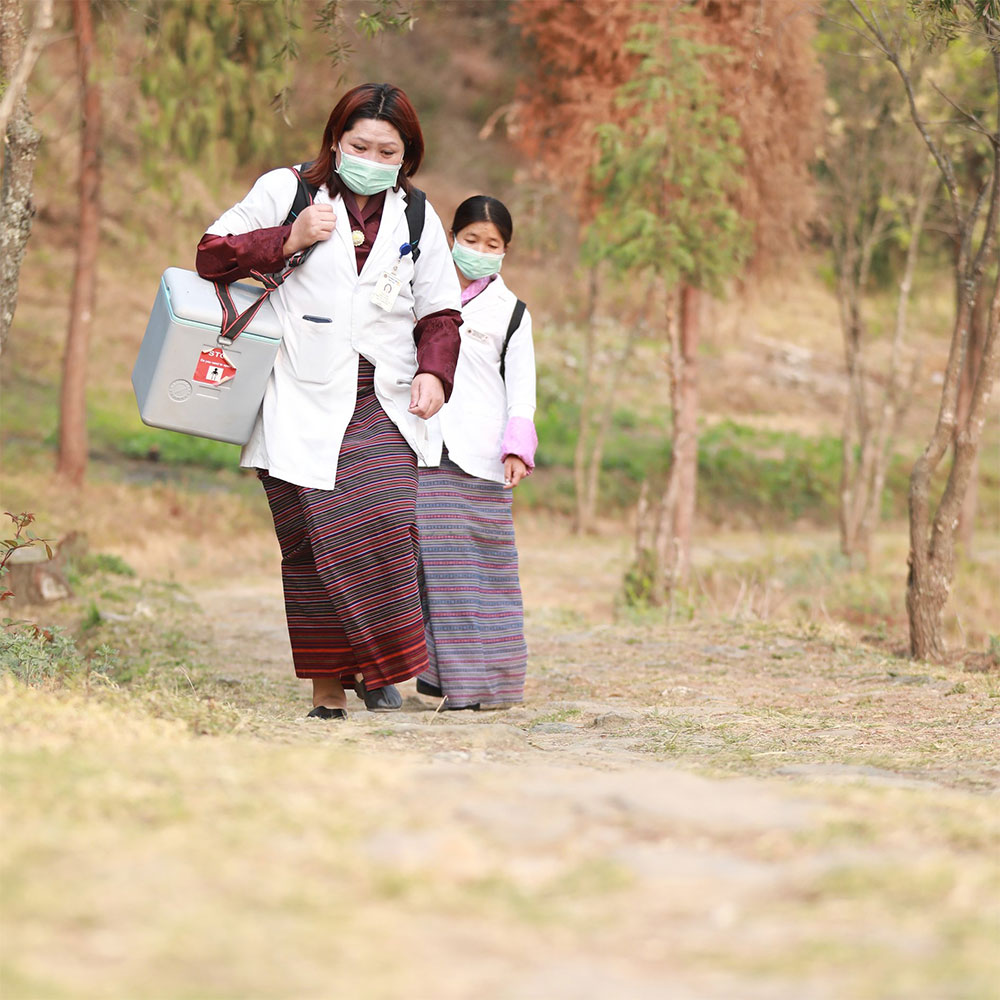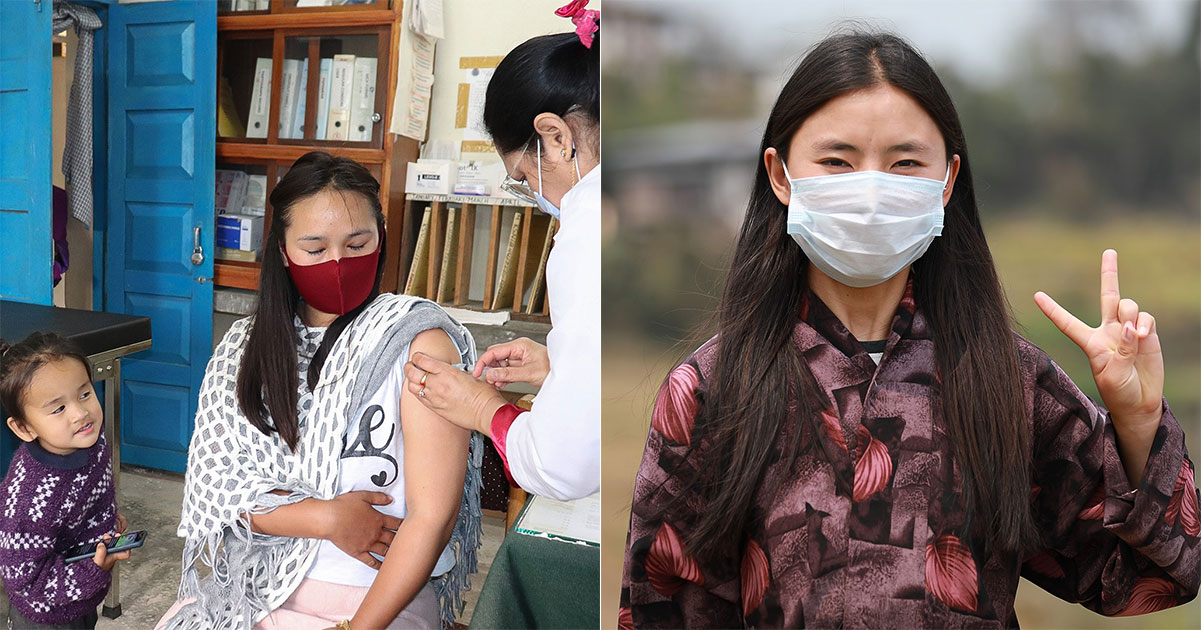Bhutan has administered close to half a million doses of Covid-19 vaccine in just nine days of rolling out its vaccination programme.
Its achievement was lauded by Unicef (United Nations International Children's Emergency Fund) in a Facebook post on April 8, 2021.
World's fastest immunisation programme
Dubbed the world's fastest immunisation programme, the accelerated rollout of shots was only introduced on March 27, when the first Covid-19 vaccine was administered to a bureaucrat to show faith in the drug.
By April 6, almost 469,664 out of its total population of 735,553 had received a single dose of vaccine, The Telegraph reported.
With children excluded from vaccination for the time being, this represented 85 per cent of Bhutan's adult citizens.
As a whole, some 62 per cent of eligible Bhutanese citizens were vaccinated in just seven days.
Dedicated volunteers lead vaccine drive
Bhutan is considered one of the world’s least developed countries, but best known for measuring progress via a Gross Domestic Happiness index
But it could very well be Bhutan’s small population size that allows it to have a major advantage over many other countries.
According to The Telegraph, Bhutan relies on its dedicated citizen volunteers, known as "desuups", to get the vaccination programme going.

The volunteers deliver vaccinations to healthcare centres, ensure citizens reported for appointments and educated the Bhutanese on social distancing and mask-wearing.
Bhutan only had 37 doctors before Covid-19
Before the pandemic, Bhutan had only 37 doctors and fewer than 3,000 full-time healthcare workers, The Telegraph reported.
To get to some 3,000 Bhutanese who live in mountainside villages in the north-western district of Gasa, a team of four medical staff was accompanied by six desuups, who work as local primary school teachers.
They reached six villages in six days, under difficult conditions that required wearing heavy boots and even activating a helicopter to carry supplies.
Why Bhutan is so fast
Existing immunisation programmes
Bhutan has existing immunisation programmes as the country achieved universal immunisations in the 1990s.
The Covid-19 vaccination drive rides on these established programmes.
High trust
Trust in authorities have been high and resistance to vaccination low.
The Bhutanese Prime Minister, Lotay Tshering, is a qualified doctor and has been leading the country’s response.
Free vaccine supplied by India out of geopolitical concerns
Bhutan’s neighbour, India, gave Bhutan 600,000 free doses of the AstraZeneca/ Oxford University vaccine manufactured by the Serum Institute of India out of goodwill and to counter China's influence.
Well-managed national response to Covid-19
In March 2020, when Bhutan detected its first Covid-19 case in an American tourist, its borders were immediately closed and have remain so.
A mandatory quarantine has since been imposed on residents returning from abroad and remains in place.
To date, Bhutan has only two lockdowns and recorded 886 cases of Covid-19 and reported just one death.
Superstition still plays a role in Bhutan
Bhutan's initial success with its vaccination programme is driven by science.
But the country is still traditional and superstitious.
ZME Science reported that Buddhist astrologers advised the government that a woman born in the year of the monkey should be chosen as the first person to receive the vaccine.
Ninda Dema, a 30-year-old Bhutanese woman, was the chosen one.
She received the shot at a school-turned vaccination center in the capital Thimphu amid chanting of Buddhist prayers.
Moreover, Bhutan did not start its vaccination in January when it received its first batches of vaccine.
Instead, it waited for the "right time".
Bhutan's prime minister's office issued a statement in the first month of 2021 to say that it was “important we roll out the nationwide vaccination on an auspicious date,” ZME Science reported.
That meant that Bhutan authorities delayed and waited until the passing of an "inauspicious" month to start vaccination.
“Upon consulting with Zhung Dratshang (the Commission for Monastic Affairs), we were informed of dana (inauspicious month) which falls between February 14 and March 13. We will wait until the period is over,” the statement added.
In Singapore
In Singapore, as of April 3, 2021, around 1.52 million vaccine doses have been administered.
Around 1.05 million individuals have received at least one dose of the vaccine, of which more than 468,000 individuals have received their second dose and completed the full vaccination regimen.
All photos via Unicef
If you like what you read, follow us on Facebook, Instagram, Twitter and Telegram to get the latest updates.
